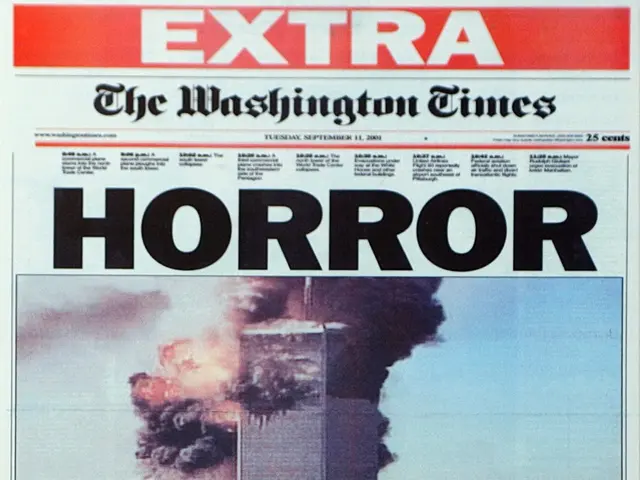Understanding the Implications of Recognizing the Palestinian State
The Palestinian conflict, a longstanding issue in global politics, has seen a new development with the increasing use of the term 'genocide' in discussions. This comes as France and Canada, along with several other countries, are planning to recognize the Palestinian State at the United Nations on September 22nd.
Israel's government, however, appears unfazed by this impending recognition. Accelerating the colonization process in the West Bank, Israel seems to view this as a pretext to solidify its hold on the region. This forward march, however, is not without opposition. Some Western countries have hesitated to recognize Palestine, primarily due to historical guilt linked to the Shoah and complicity in crimes against Jews.
The Israeli government's actions have not gone unnoticed by its allies either. Israel feels powerful and strongly supported by the United States, especially with Trump in office. However, this support may not be unwavering. The Israeli government's colonization efforts will continue as long as Trump supports them, but there are signs that this support may be waning.
France and Canada have delayed the official recognition of the Palestinian state due to their long-standing support for a two-state solution and the complexities of the Israeli-Palestinian conflict. France, led by President Emmanuel Macron, has recently been pushing the recognition forward as part of international efforts to revive peace negotiations. Canada, on the other hand, has recognized Palestine, distancing itself from the United States.
The recognition of Palestine by these countries will be symbolic and not bring concrete changes. However, it could potentially lead to diplomatic isolation for Israel, especially if horrors happening in Gaza continue unabated. The French media has started to look at the conflict in Gaza differently due to France's promises of support and recognition.
Some leaders, like Donald Trump, believe that a Palestinian State could ultimately threaten Israel's very existence. This belief, however, is not shared by all. Political short-sightedness, fear of being labeled anti-Semitic, and the legitimate attachment to Israel's right to exist are other reasons for this resistance.
The historical sympathy and remorse capital that Israel has enjoyed is gradually eroding. This was evident when Benyamin Netanyahu accused Emmanuel Macron of 'feeding anti-Semitism' in response to France's announcement.
As of now, 148 out of 193 UN member countries recognize the Palestinian State. The countries planning to recognize Palestine include the United Kingdom, Malta, Australia, Luxembourg, and Belgium. France is not expected to back down from its recognition of Palestine.
The Israeli occupation remains, and nothing will change on the ground as long as Israel and the United States do not want to. The future of the Palestinian conflict remains uncertain, but one thing is clear: the international community is increasingly calling for a resolution to this longstanding issue.
Read also:
- United States tariffs pose a threat to India, necessitating the recruitment of adept negotiators or strategists, similar to those who had influenced Trump's decisions.
- Weekly happenings in the German Federal Parliament (Bundestag)
- Southwest region's most popular posts, accompanied by an inquiry:
- Discussion between Putin and Trump in Alaska could potentially overshadow Ukraine's concerns








